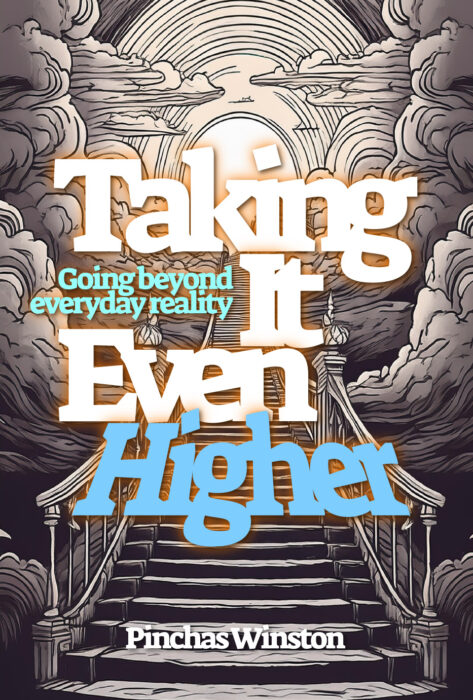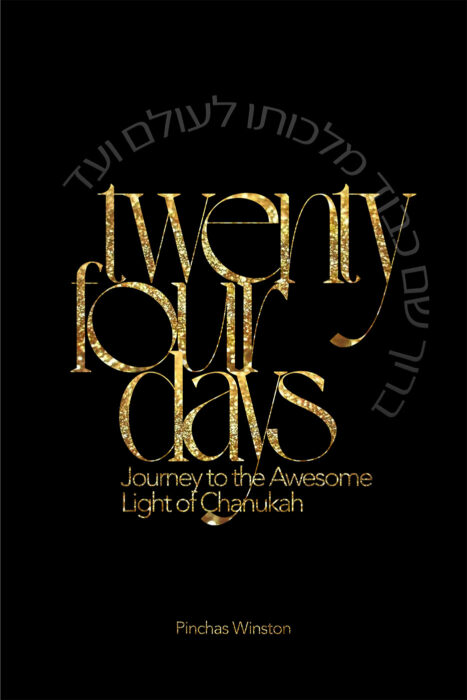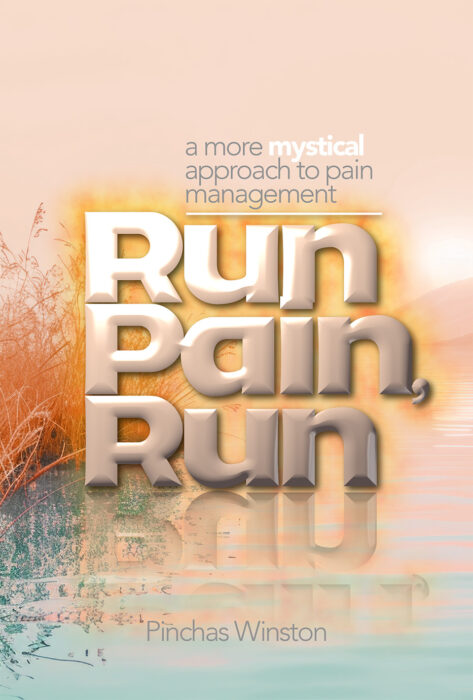Parashas VaAira , Issue #1028 – By Rabbi Pinchas Winston
FRIDAY NIGHT
WE CAN FINALLY sit back and enjoy the show. It’s always so comforting to watch the tables finally turn on Pharaoh and the Jews get a break. By the sixth plague, they won’t have to show up for work anymore, just watch the Six O’clock News each day and see their enemy pulverized.
But it won’t be total joy the entire way through. There is going to be a very dark time between now and redemption, both literally and metaphorically. Every plague will only touch the Egyptians except for the ninth one, the Plague of Darkness. It will impact the Jewish community as well in a devastating way. Four-fifths of the total Jewish population in Egypt will perish, 12,000,000 Jews altogether. The Egyptians will not be the only ones mourning their losses after that plague is over.
It has historic significance, especially today.
Rashi asks and answers:
Why did He bring darkness upon them [the Egyptians]? Because there were wicked people among the Jews in that generation who did not want to leave [Egypt]. They died during the three days of darkness, so that the Egyptians would not see their downfall and say, “They too are being affected like us.” (Rashi, Shemos 10:22)
In other words, if God wanted to kill off those Jews who did not want to leave Egypt, why during the darkness? Rashi explains: to cover up their deaths. Even though it is hard to fathom how the Egyptians did not notice 12,000,000 less Jews in the country, somehow not seeing them go hid the fact that they too were affected by one of the plagues. God wanted it clear that the plagues were from Him and aimed at the Egyptians. He didn’t want the death of the four-fifths to cloud the issue.
In fact, even more amazing is how their deaths aren’t even mentioned in the Torah, only hinted to. More people died during the ninth plague than in the Holocaust, and we certainly would not have relegated the Holocaust to only second page news. (Actually, I just read, the New York Times did.) And because the effect of the plague on the Jews is passed over, no one really considers how God can get at the Jews, when it is necessary, without making it look as if He is targeting the Jewish people specifically.
That makes history very tricky. Why do teshuvah if our problem is a general problem? Why wonder what God is telling us specifically as a people if He is impacting the world as whole. Why worry about where things are going if they seem to be going there for everyone?
So we don’t, and we are left completely in the dark until the enemy makes its nefarious plans clear to everyone. Then we kick ourselves and wonder why we didn’t see it coming and waited until it was too late to protect ourselves from it. It’s because we were looking for similarities to past atrocities that are never really apparent until well into the process. Sometimes it’s because the enemy keeps it a secret. Sometimes it is because God doesn’t put it into their heads until He is ready to.
SHABBOS DAY
I READ A book about 30 years ago by chance. When I say chance, I don’t literally mean chance. Everything is Divine Providence, and finding and reading this book clearly was as well. It’s just that the circumstance that led to my seeing this book, and the short section I just happened to turn to in the five minutes I had, were so random to me. I don’t even remember what it was called.
I don’t even know what the book was about. I had five minutes to look at it, and read where I had happened to open it up. But what I read taught me a really important lesson about being Jewish in this world.
It was a Californian doctor explaining why he went from being pro-abortion to anti-abortion. He had become a suicide preventionist and went to study about it from a German expert. At some point in time, he popped the question to his German mentor: How were the Germans able to carry out genocide?
He said she took a big sigh and said that she knew the question was coming. It was her answer that changed his opinion about abortion.
She said that three things were necessary. First, they had to create the idea of a fatherland to create nationalist fervor. In Germany that is not hard because Germans tended to be very nationalistic. Next, she said, they had to make it clear to everyone that those who opposed the father-in-land were enemies of the state.
But, she said, that still wasn’t enough to convince 50 million Germans to either carry out the Holocaust, or not interfere with it. A third step was necessary. They had to convince the people that an enemy of the state was also subhuman and then, she concluded, genocide becomes possible.
It was lesson I have never forgotten, and the truth is, we’ve seen it here-and-there in different forms. Relatively “normal” people have murdered other relatively normal people in revenge. Sports matches have resulted in rampages that have destroyed other people’s property and have even resulted in death. More recently, there has been road rage. It’s frightening how easy it is for people to see others as enemies, and how easy it is for them to harm them after they do.
It doesn’t mean that the perpetrators don’t come to their senses later and, perhaps, feel some regret. But a lot of good that did six million Jews after the Holocaust, or the relatives of victims of hate and rage. Never underestimate the depths to which people can sink, or what they are capable of doing in the name of self-preservation.
That’s why I became concerned when I saw how the Trump-Clinton election brought out such anger and hatred for the other side. Politics aside, the resulting anger was unprecedented in recent times. Even families stopped talking to one another because of their political preference. Not a good sign.
And even though the Democrats took over the next time, the hatred and rage didn’t stop. The “winners” instead ramped it up, using one excuse or another to attack innocent people and impose their will undemocratically.
But what really got me thinking was reading about the animosity towards non-vaccinated people by the vaccinated, spearheaded by Fauci himself. “Let them just die,” one congressperson is quoted as saying. Some people are calling for segregation and, I have even heard the term “subhuman” used a few times to slight those against the vaccination…even though we still don’t really how well they work, in many cases they haven’t, and many other cases they have even been deadly.
But at least it’s not antisemitism. The coronavirus was manmade, but it’s targeting Jew and gentile alike. The ridiculing and the anger are aimed at anyone who is anti-vax. And if I am Jewish but pro-vax, then I will be just as safe as any gentile who is also. Sounds just like the four-fifths who died in the Plague of Darkness, and the secular 100,000 German Jews who chose to stay instead of emigrate to Palestine between 1930-39.
SEUDAS SHLISHIS
THE TRUTH IS, I realized after reading the book, the lady was wrong. She was right about the three stages that led to the Holocaust, but she left out the fourth and most important one of all. Even after reading what the Californian doctor had written I realized that genocide on the scale of the Holocaust was not likely even after making enemies subhuman, which also included gypsies and other “societal misfits.”
The fourth element of course is God. He is the only One Who can take something from the side of the impossible or unlikely to the actual. The first three steps just prime the perpetrators, but He is the One Who has to push them over the top to do the ridiculously insane and deadly. But probably not believing in God, or at least to that level, the three stages she mentioned was all she had.
The Holocaust was a miracle, a very black miracle. Even after adding all of the factors that are considered to be the basis of it, the equation doesn’t work. There are still whys and hows in need of answering that do not get answered except by adding God to the equation. A divine decree was in place, and it completed what people could not.
That’s why one of the most dangerous statements people make is, “It could never happen in America.” Why? Because people in America are too honest…too civil…to respectful? Even that is being disproven among many sections of the population. But the most important reason why it is so dangerously naive is because ultimately, it has less to do with the people than it does with God’s will. Just look at how the Trump-Clinton election, the George Floyd death, and now the coronavirus pandemic has torn America, and even the world, asunder, as we see—even here in Eretz Yisroel.
The politicians, the scientists, and activists are all just distractions. They’re just God’s means to get history to where it has to go next. It’s really irrelevant whether the coronavirus is as bad as they say or hyped, whether the vaccines are really vaccines and good for you, or not. It will be what God wants it to be, and it will affect what God wants it to affect.
The plague was meant for the Egyptians, and we celebrate it as the second last before Pharaoh let us go. But in reality, no Egyptians are recorded dying from it, yet 12,000,000 Jews did. It made sure that the only Jews who left Egypt were the ones God deemed worthy of leaving, and there wasn’t a hint of antisemitism anywhere. If you want to survive as a Jew, you have to think outside the antisemitism box. God has more than one way to get the job done.
BOOK OF THE WEEK
God.calm: Join the dots, see the bigger picture
WHICH CHILD HASN’T played Join the Dots? In this very high-tech society in which even small children play sophisticated electronic games, Join the Dots may be a thing of the past. However, once-upon-a-time, it was sufficiently entertaining for a child to take a pencil and draw a line from dot-to-dot, and watch a pre-arranged but seemingly random set of points become a clever picture before their very eyes.
However, though the game may be gone, the concept is as necessary to everyday life as ever before, perhaps even more so today so close to the end of history. While some people “throw the baby out with the bathwater,” others bathe the “baby” in water that ought to be thrown out. The only way to avoid either situation is by having the proper context, and that is a function of joining dots, historical dots.
Not only this, but doing so is crucial for one of the most important traits a Jew can develop, bitachon—trust in God. By connecting the Torah dots, the picture that emerges is the Big Picture, the Aitz HaChaim, a vision that encompasses aspects of Creation far beyond that which is visible to the physical eye. It is a vision that comes as close to God’s perspective of Creation as is humanly possible. That is truly calming.
Such information can only result in a greater understanding of history and of how God runs His world. At this late stage of history, when so many events are occurring that seem to defy conventional wisdom, it is crucial to have a context—the Aitz HaChaim—into which to fit all those details—Aitz HaDa’as Tov v’Rah. It’s the only way to remain sane, which means realizing the spiritual opportunity of a moment, and using it properly.
The starting point is in knowing that there is information available to us, some of it going back thousands of years, some of it far more current. When woven together they result in an intellectual tapestry that yields an understanding that makes sense of even the most illogical aspects of history and human behavior. Some of it belongs to the realm of Nigleh, the revealed parts of Torah, and some of it to Nistar, the hidden parts of Torah. But all of it is crucial for spiritually, and perhaps physically, surviving the End-of-Days.
Tradition states that when history as we know it comes to a close, and the final stage of the War of Gog and Magog occurs, there will be many who will be shocked by what happens. The implications of such an ending to history will be staggering for them. Like people who had invested their life savings in a sham, they will feel as if they spent their entire lives walking the wrong path, with no time left to course correct.
Only a small group will be prepared. It is not always so easy to know who they are, because they aren’t always the most accomplished in the eyes of others. Even the great Shmuel HaNavi had a difficult time seeing why Dovid ben Yishai was more fitting to be king of the Jewish people than his more successful and popular brothers. Until, that is, he got to know him from God’s perspective.
Not only this, but after four-fifths of the Jewish population—12,000,000—were killed during the Plague of Darkness in Egypt, people were shocked the next day when they discovered who survived and who didn’t. This was because only God knows what is in someone’s heart, and where it might lead them in the future. Only God knows which roles will be necessary to fill in history, and who is worth keeping around just to execute them.
Imagine what it was like after the seven days of darkness during which the Jews died as well. Some family members survived, many did not. Some friends were still living, many had perished. Only one out of every five Jews, after only one week, remained.
But that was 3,319 years ago. What relevance is there today in knowing such a statistic?
This:
God said to Moshe, “Stretch forth your hand toward the heavens and there shall be darkness upon the land of Egypt, and the darkness will be tangible.” (Shemos 10:21)
And why did He bring darkness upon them? Because there were wicked people amongst the Jewish people of that generation who had no desire to leave Egypt, and these died during the three days of darkness… (Rashi)
Only one out of five left Egypt, while four-fifths died during the three days of darkness because they were unworthy of being delivered. (Rashi, Shemos 13:18)
Rava said: It will be likewise in the Days of Moshiach. (Sanhedrin 111a)
For the people, that is, who failed to connect the dots, the Torah dots, the dots of history that reveal the true undercurrent of Jewish history. Given that four out of every five Jews today is assimilated, prompting many to refer to this as a spiritual holocaust, one can assume that there is no better time than the present to get out our intellectual pencils, and to starting finding those dots in need of connection.
We need to see the picture, the Big Picture.
Rabbi Pinchas Winston
Thirtysix.org



















